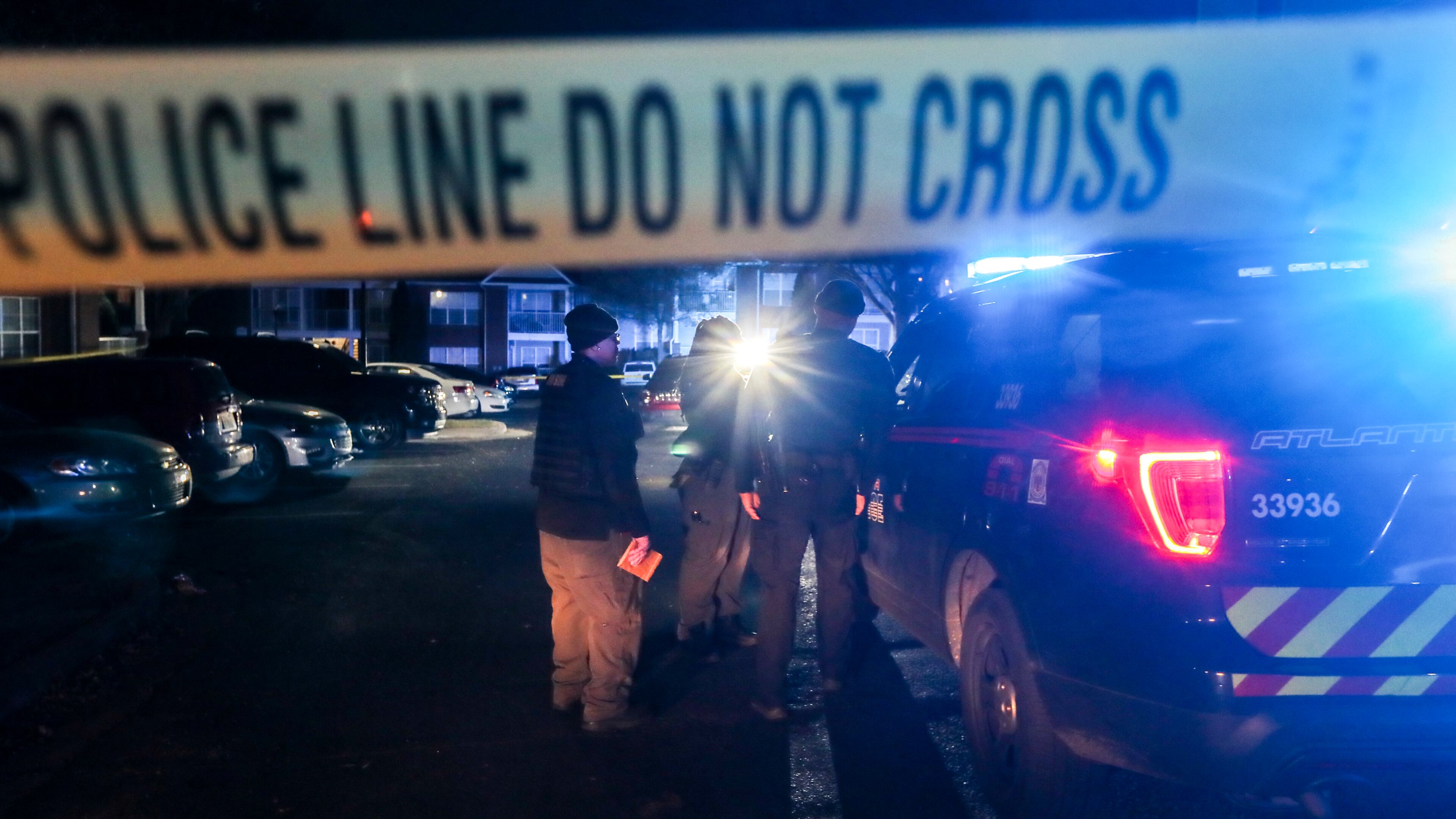Opinion: A confused justice system. A fearful public.

When violent crime is top of mind, it’s understandable that citizens are fearful – and even outraged – by what’s happening in the criminal justice system.
The latest example of that occurred last week after a Fulton County Magistrate Court judge granted bond to an accused cop shooter.
Yes, a fuller examination showed the man was unlikely to be released from jail anytime soon. But in the time it took to sort it out, an anxious public grew more wary – and frustrated.
The man at the center of the story, Christian Eppinger, 22, was charged back in February with shooting an Atlanta police officer, David Rodgers.
Rodgers was shot six times, including once on the side of his head, while trying to arrest Eppinger.
Eppinger’s felony case was back in the news last week after Fulton County District Attorney Fani Willis criticized the decision to grant bond in the matter. While specifically not criticizing the Magistrate Court judge in the case, Willis said the process was indicative of problems in determining which defendants are kept in custody without bail.
In Eppinger’s case, the judge said she was initially not aware of his full criminal history, his supposed ongoing attempts to engage in gang activity from inside jail or his bond revocation for previous offenses.
Once a fuller picture of Eppinger’s background became known, including his violation of probation resulting from a string of 2016 violent felonies, the magistrate judge increased his bond to $2 million, from the initial $400,000 that had been set.
As the matter unfolded, the criminal justice system seemed almost as confused as a fearful public over what was going on.
And that’s just unacceptable.
A Fulton County deputy district attorney apologized to the magistrate judge because “the most complete set of information” was not initially available to help fully inform the bond decision.
The Eppinger case is just one example of a problem that must be fixed.
Civil order in society requires confidence in the public safety and criminal justice system that our tax dollars pay for.
The relentless assault of high rates of violent crime in recent years – along with reports of flawed communication of critical information about a defendant’s history – has badly damaged the public’s faith in the system.
Clearly, fast and thorough fixes are needed, and this must be a priority of public officials and lawmakers alike.
Accurate, up-to-date information is essential to effective crime-fighting, even if the reports generated lack the visual impact of flashing blue lights or officers stringing crime scene tape.
It should not be beyond the reach of the high-tech wizardry that’s omnipresent in our lives and workplaces to establish and maintain electronic systems that provide police, courts and the state corrections system with the right data they need to do their jobs.
And their top priority is to keep Georgians safe.
There are some promising steps, given that the Georgia General Assembly this month passed Senate Bill 441, which calls for improvements in the state’s criminal justice database.
At the time of its passage, Lt. Gov. Geoff Duncan said, “When judicial leaders do not have a complete picture of an individual’s criminal history, the safety of our communities is compromised.”
The new law calls for forming a “Criminal Case Data Exchange Board” that would create and oversee “a statewide electronic reporting process for criminal justice agencies, clerks of court, probation and parole supervision offices,” according to a statement from Duncan’s office.
The push for the law came after investigative reports by The Atlanta Journal-Constitution found problems with the status quo here. A January news story began by reporting that “Georgia’s database of criminal histories is filled with information gaps that make the records unreliable for the state’s judges, employers and probation officers.”
In Fulton County alone, our reporting found that the criminal records system had no final outcomes reported for more than 1.5 million charges, about 40% of the Fulton charges in the state database. About 19,000 charges with missing information were for serious violent felonies.
Statewide, for nearly 7 million entries in the criminal records database no disposition of the cases had been entered. That’s more than 1 in 4 charges statewide. And in 17 Georgia counties, fewer than 60% of charges had dispositions filed, according to Georgia Bureau of Investigation report cards for each county.
As you can see, this problem is not new. A 2019 report by the Atlanta Repeat Offender Commission noted “incomplete and inaccurate knowledge by agencies throughout the process” from arrest through trial.
Fulton County Superior Court Chief Judge Christopher S. Brasher testified before a state legislative committee last October that “we need better information so we can make better decisions.” Pete Skandalakis, executive director of the Prosecuting Attorneys’ Council of Georgia told The Atlanta Journal-Constitution for a January story that “it’s a problem that needs to be addressed.”
SB 441, which awaits Gov. Brian Kemp’s signature, offers at least a start toward fixing this problem of public safety and, by inference, public confidence.
Even with some pending fixes in the making, it’s important to note that it’s not only data problems that need correcting.
An understandable fear of violent crime is now forcefully driving the expectations and actions of the public, politicians and various civic players.
Beginning to fix this crisis will require not only improvements to information systems and interagency collaboration, but also an unwavering commitment to public safety and the common good – as opposed to finger-pointing for political benefit.
While we wait, these problems – and the violence we’re enduring – continues.
It must stop. After all, each of us deserves to feel safe.
The Editorial Board.


